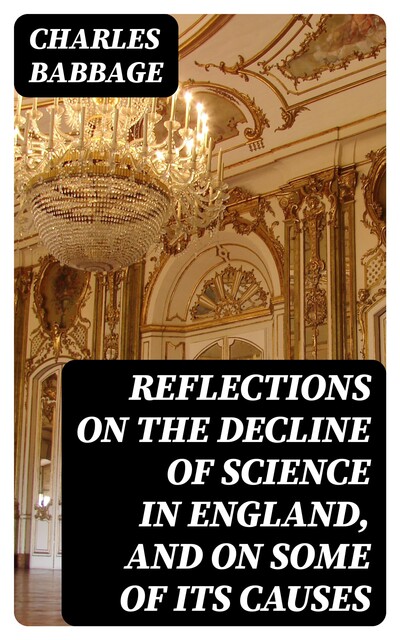In “Reflections on the Decline of Science in England, and on Some of Its Causes,” Charles Babbage delivers a cogent critique of the scientific milieu in 19th-century England. This work is marked by Babbage's characteristic precision and analytical rigor, as he dissects the myriad factors contributing to the stagnation of scientific progress in his era. Through a blend of empirical observation and philosophical inquiry, Babbage illuminates the institutional, educational, and social barriers that hindered scientific inquiry, offering a prescient analysis of the interplay between science and society amidst the Industrial Revolution's unfolding complexities. As a mathematician, inventor, and early computer scientist, Babbage was acutely aware of the relationship between scientific advancement and societal development. His personal experiences in navigating the scientific community, coupled with his innovative endeavors in mechanical computation, provided a unique lens through which he evaluated the decline in scientific rigor. Babbage's advocacy for systematic inquiry and his steadfast commitment to empirical research emerge as pivotal themes in these reflections, showcasing his foresight in recognizing the perils of neglecting scientific disciplines. Babbage's insightful examination remains highly relevant, urging contemporary readers to consider the vital importance of fostering a robust scientific environment. This work is not only essential for scholars of the history of science but also serves as a call to action for current and future generations to prioritize and safeguard scientific inquiry, challenging them to confront the lingering issues that continue to affect scientific advancement today.


